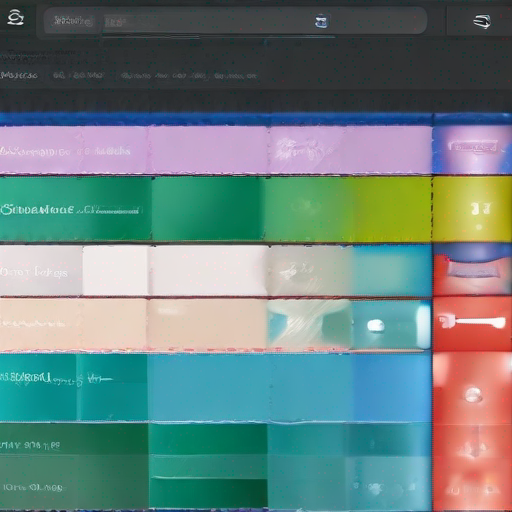Mastering Google Ads for Effective Campaigns
As an online marketer, you know that running successful campaigns on Google Ads requires a deep understanding of keyword research. Keyword Tool Planner Adwords is a powerful tool that can help you achieve this goal. In this article, we’ll dive into the world of Google Ads and explore how to master the art of keyword planning for effective campaigns.
What is Keyword Tool Planner Adwords?
Keyword Tool Planner Adwords is an online platform that allows you to research keywords, analyze search volume, and identify trends in your target audience. This tool is a game-changer for marketers who want to optimize their Google Ads campaigns for maximum ROI. By leveraging the power of this tool, you can:
- Identify relevant keywords for your business
- Analyze search volume and competition levels
- Create targeted ad groups for optimal campaign performance
How Does Keyword Tool Planner Adwords Work?
The keyword research process typically involves several steps:
- Brainstorming: Think about the products or services your business offers, as well as relevant industries and topics.
- Research: Use tools like Google Ads Keyword Planner (formerly known as Google Keyword Tool) to generate a list of potential keywords related to your brainstormed ideas.
- Analysis: Analyze the search volume, competition levels, and cost-per-click (CPC) for each keyword to determine its viability.
By using Keyword Tool Planner Adwords, you can skip the manual research process and dive straight into analysis mode. This saves time and energy, allowing you to focus on optimizing your campaigns.
Benefits of Using Keyword Tool Planner Adwords
- Time-Saving: Automate the keyword research process and spend more time optimizing your campaigns.
- Increased Efficiency: Identify high-performing keywords and ad groups quickly and easily.
- Improved Campaign Performance: Make data-driven decisions based on accurate keyword analysis.
Step-by-Step Guide to Mastering Keyword Tool Planner Adwords
Step 1: Brainstorm Keywords
- Start by brainstorming a list of potential keywords related to your business, products, or services.
- Use industry reports, customer feedback, and market trends to inform your ideas.
Step 2: Research Keywords with Keyword Tool Planner Adwords
- Go to the Keyword Tool Planner Adwords website and sign in with your Google account.
- Enter your brainstormed keywords into the search bar and click “Search.”
- Review the list of suggested keywords, including their search volume, competition levels, and CPC.
Step 3: Analyze Keyword Data
| Keyword | Search Volume | Competition Level | CPC |
|---|---|---|---|
| Example Keyword 1 | 10,000 searches/month | Low-Moderate | $0.50 |
| Example Keyword 2 | 5,000 searches/month | High | $1.25 |
- Review the data for each keyword to determine its viability.
- Identify high-performing keywords with low competition and moderate CPC.
Step 4: Create Targeted Ad Groups
- Use your analyzed keyword data to create targeted ad groups for your campaigns.
- Group similar keywords together based on their themes, products, or services.
- Set bids and ad copy for each ad group to optimize performance.
Key Takeaways
- Automate Your Keyword Research: Save time and energy by using Keyword Tool Planner Adwords to automate the keyword research process.
- Analyze Keyword Data Accurately: Use the data provided by Keyword Tool Planner Adwords to make informed decisions about your ad groups and bidding strategies.
- Focus on High-Performing Keywords: Identify high-performing keywords with low competition and moderate CPC, and create targeted ad groups around them.
By mastering the art of keyword planning using Keyword Tool Planner Adwords, you can optimize your Google Ads campaigns for maximum ROI and drive more conversions for your business. Remember to always keep your target audience in mind when creating ad groups and setting bids.
Conclusion
Mastering Google Ads requires a deep understanding of keyword research. By using Keyword Tool Planner Adwords, you can streamline the keyword research process, analyze data accurately, and focus on high-performing keywords. Follow these steps, and you’ll be well on your way to creating effective campaigns that drive results for your business.
Key Takeaways
- Automate Your Keyword Research
- Analyze Keyword Data Accurately
- Focus on High-Performing Keywords

